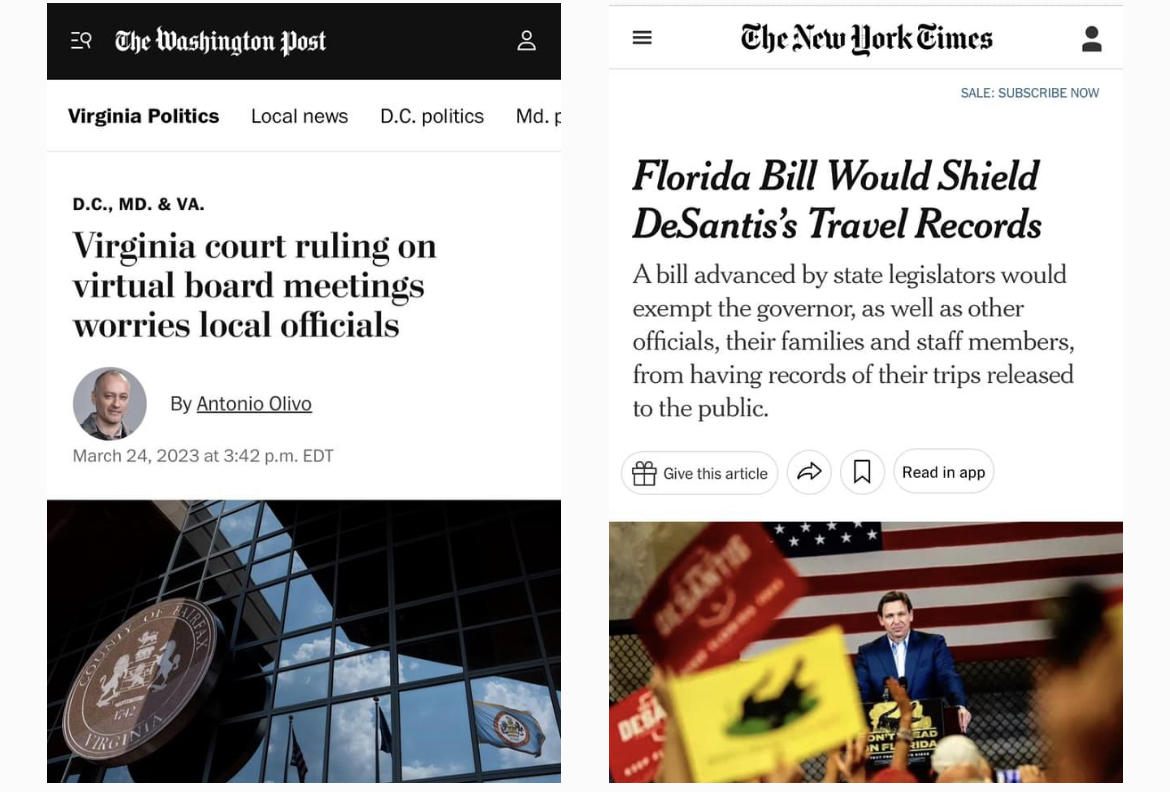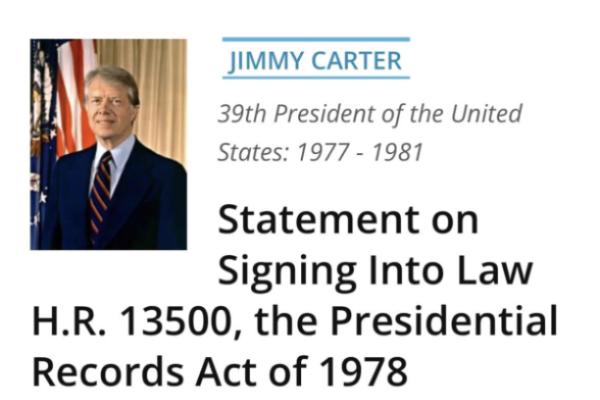
When open government laws make national headlines:
https://www.nytimes.com/2023/03/24/us/politics/desantis-travel-records-…
Kentucky has addressed the issue posed in New York Times coverage of efforts by the Florida legislature to shield travel records of Governor Ron DeSantis and other ranking officials from public inspection.
Happily, Kentucky comes down on the side of public access.
Who can forget former Governor Matt Bevin’s “it’s none of their business” response to taxpayer questions about his travel on a taxpayer owned airplane?
https://twitter.com/samnewton/status/1179834103132250115?s=11&t=1dACoY9…
Within a year of the Bevin travel record controversy, Auditor Mike Harmon called for greater transparency in “the use of taxpayer owned and funded aircraft by their elected leaders for both official and non-official business,” and advocated “for changes in law by the General Assembly that will create a consistent way to disclose the purpose of flights . . . . “
The issue was squarely resolved against Bevin (and more recently, against Treasurer Allison Ball).
https://kyopengov.org/blog/bevin-ball-resistance-disclosure-public-offi…
And then there’s this from The Washington Post:
https://www.washingtonpost.com/dc-md-va/2023/03/24/virginia-court-rulin…
Once again, Kentucky is ahead of the game on the issue of the voiding of actions taken in certain illegal meetings.
In 2012, the Supreme Court recognized:
“A public agency's failure to comply with the strict letter of the law in conducting meetings violates the public good. Thus, the Open Meetings Act provides that ‘any rule, resolution, regulation, ordinance, or other formal action of a public agency without substantial compliance with the requirements of KRS 61.810, 61.815, 61.820, and KRS 61.823 shall be voidable by a court of competent jurisdiction.’ KRS 61.848.
“The language in this provision is clear. The General Assembly specifically stated that noncompliant action is ‘voidable,’ not ‘void.’ We may not interpret a statute at variance with its stated language. Birdsong v. State, 347 S.W.3d 47, 49 (Ky. 2011). What's more, previous decisions have recognized this provision means what it unambiguously says, that noncompliant action is valid until nullified by a court. The court in Stinson v. State Bd. of Accountancy, 625 S.W.2d 589, 592 (Ky. App. 1981) clarified that the voidability provision ‘renders an action taken without substantial compliance with KRS 61.815, not void but voidable.’”
Carter v Smith https://cases.justia.com/kentucky/supreme-court/2010-sc-000295-dg.pdf?t…1396122876
The Supreme Court thereafter voided a contract with an independent contractor negotiated in closed session, finally declaring that:
“A public agency cannot ratify actions impr-operly taken in closed session. When conversations and actions regarding the public's business should not have occurred in private in the first place, an agency cannot render those actions valid by simply taking a vote in open session without any discussion of the matter. To permit the Board to do just that in this case would eviscerate the Open Meetings Act. It is inconceivable that the General Assembly intended to allow a public agency to conduct its business behind closed doors, regardless of whether an exception authorized the closed session, and then protect its private dealings by taking a quick vote in open
session and claiming the secret actions valid by ratification. Such an interpretation is fundamentally at odds with the purpose and spirit of the Open Meetings Act. "[T]he formation of public policy is public business and may not be conducted in secret . . . [T]he people of this Commonwealth do not yield their sovereignty to the agencies which serve them . . . [but] insist on remaining informed so they may retain control over the instruments they have created." 1974 Ky. Acts Chap. 377, HB 100.
“If a public agency wants to effectuate actions that were originally taken in an improper closed session, it must, to the extent possible, begin anew. Though a bell can never truly be un-rung, the agency must take up the matter and start over in open session, handling the matter as the agency would any business the law requires be conducted before the public.”
See also Webster County Board of Education v Newell (2013):
“A public agency cannot ratify actions improperly taken in closed session. When conversations and actions regarding the public's business should not have occurred in private in the first place, an agency cannot render those actions valid by simply taking a vote in open session without any discussion of the matter.
“Clearly, the rationale behind this reasoning is that any ability to ratify actions done improperly renders the Open Meetings Act meaningless. Ratification cannot be allowed to legitimize unauthorized conduct at an improperly closed session. Hence, because no vote was taken during an open session and because consensus was not established, the action of the board cannot be ratified. As aptly explained by the trial court, the Board could not ratify an action that never took place.”
https://caselaw.findlaw.com/ky-court-of-appeals/1623132.html
It’s satisfying when Kentucky law is well settled — in favor of the public’s right to know — on controversial issues in other states.



